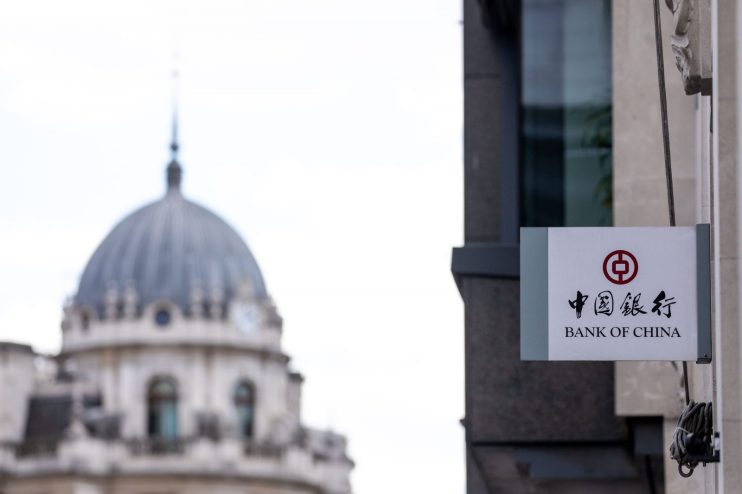There can be no ‘new chapter’ with China while Hong Kong’s freedoms are trampled

Hong Kong is a unique region in the world.
The “one country, two systems” policy is meant to ensure that the territory represents a bridge between the west and China, and flourishes as a symbol of freedom, hope and possibilities.
Sadly, this is not the Hong Kong that we see today.
Since the National Security Law was imposed in June of this year, we have seen an astonishing denial of basic rights and freedoms across the region.
Children have been brutally arrested, pro-democracy activists have been detained in unknown locations without legal representation of their choice, and Hong Kong’s entire educational curriculum has been overhauled to erase the region’s memory of free speech.
At a time when oppressed Hong Kong citizens are looking for solidarity and support from the international community, three global banks have instead openly backed the implementation of the draconian National Security Law: HSBC, Standard Chartered, and the Bank of China. Consequently, these banks have unequivocally become complicit in the human rights abuses and outright tyranny that this law legitimises.
It is scarcely believable to read the words of Wengian Fang, chief executive of the UK arm of the Bank of China. He has called upon the UK to build a relationship with “the right, pragmatic approach and positive mindset”, completely overlooking the horrendous, draconian brutality that has been inflicted on the people of Hong Kong, not to mention the Uighur minority in Xinjiang province.
Fang has also encouraged the UK to put profits above human rights abuses, as he guarantees “greater business opportunities and economic value for all of us” if such a relationship were to be developed.
The Bank of China’s call is an insult to human rights and the principle of democracy. But perhaps we shouldn’t be surprised, considering the bank’s close relationship with the Beijing government.
Unfortunately, Fang’s views are not unusual. In fact, they are shared by many senior figures in the Chinese government. These individuals and the businesses they represent must be held to account for supporting a law that legitimises human rights abuses.
Indeed, Fang’s perplexing and inexcusable dismissal of the rights of the people of Hong Kong is reminiscent of a recent letter I received from the Chinese ambassador Liu Xiaoming. In this letter, he claimed that “the UK has no sovereignty, jurisdiction or right of supervision of Hong Kong”, completely ignoring the Sino-British Joint Declaration signed in 1984.
So let me, as an elected member of the UK parliament, send a clear message to Fang, ambassador Xiaoming, the Chinese government, and anyone with authority in Hong Kong who perpetrates human rights abuses on its innocent people: we cannot start a new chapter between our two countries until China respects the old chapter. That means respecting the 1984 treaty that safeguards the basic human rights of Hongkongers.
This is not a matter of dusty history. The Sino-British Joint Declaration is an active, legally binding document, verified by the United Nations. It means that the UK has a responsibility to ensure that Hong Kong remains an autonomous and free region. This important moral, historical and legal duty bestowed onto the UK will never be compromised by bullish threats.
Fang and other leaders of Chinese companies must realise that the UK’s relationship with China will never be positive so long as it continues its illegal and immoral takeover of Hong Kong. This country has a duty to stand with Hong Kong, and we will not waver from this commitment.
The UK will only be able to build a “positive” relationship with China when the National Security Law is revoked and Hong Kong’s autonomy is restored.
Main image credit: Getty